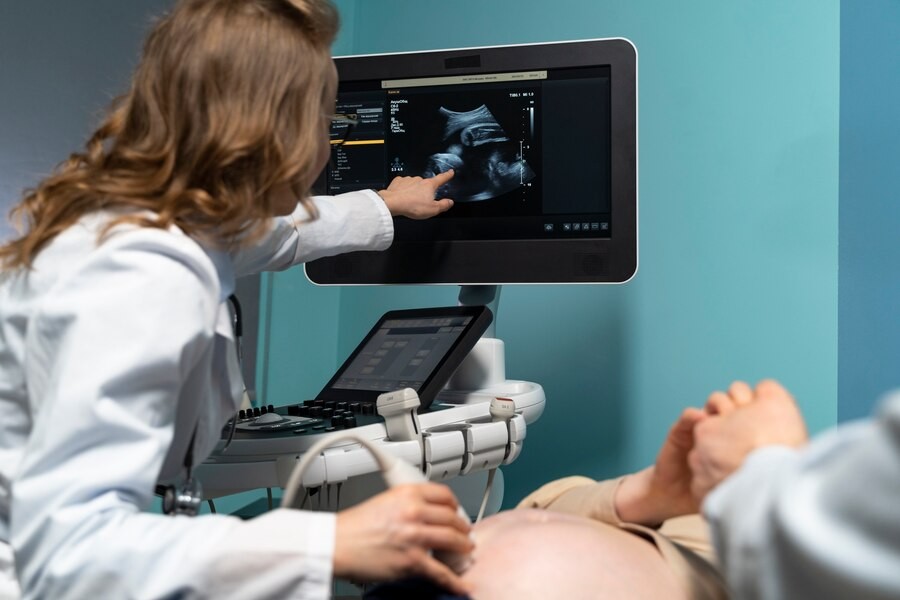The poliovirus is a disease that causes poliomyelitis. This virus generally attacks the nerves in the spinal cord, disrupting the body's ability to send signals to the muscles. As a result, people affected by polio can experience mild-to-severe paralysis.
The poliovirus can affect the body differently, depending on where it multiplies and attacks. These differences cause the symptoms of polio to vary.
Types of Polio diseases
These are several variants of Polio disease:
Abortive Poliomyelitis (Abortive Polio)
Some people may experience a poliovirus infection with mild symptoms similar to the flu. Symptoms may only last for 2-3 days. This type of polio usually does not cause long-term health problems.
Some of the symptoms experienced include:
- Fever
- Headache
- Muscle pain
- Sore throat
- Stomach ache
- Loss of appetite
- Nausea
- Vomiting
Non-paralytic Polio
Non-paralytic polio is a more severe form than abortive polio. The symptoms are flu-like but last longer, up to several days.
Non-paralytic polio does not cause paralysis, but in some people, it can develop into a more serious condition, such as aseptic meningitis. Aseptic meningitis is a condition where the protective membranes of the brain and spinal cord become inflamed without bacterial infection in the cerebrospinal fluid.
Symptoms of non-paralytic polio include:
- Fever
- Headache
- Muscle pain
- Sore throat
- Stomach ache
- Loss of appetite
- Nausea
- Vomiting
- Neck pain or stiffness
- Pain or stiffness in the arms and legs
- Severe headache
When this disease progresses to aseptic meningitis, you may experience serious conditions that can be fatal. Other symptoms may include neck stiffness, sensitivity to light, increased drowsiness, and decreased consciousness.
Paralytic Polio
Paralytic polio (paralytic poliomyelitis) is the most severe form of polio. The virus attacks and damages motor nerve cells in the spinal cord or brain, which can cause paralysis in the muscles connected to the infected nerves.
Initially, the disease appears similar to non-paralytic polio, but the symptoms become more severe. Symptoms include:
- Severe pain
- Extreme sensitivity to touch
- Tingling or pricking sensations
- Muscle spasms or twitching
- Muscle weakness that can progress to paralysis
Polioencephalitis
Polioencephalitis is a rare case where the poliovirus infection develops into encephalitis, meaning the poliovirus attacks the brain and causes inflammation in brain tissues. Polioencephalitis more commonly affects infants, characterized by several symptoms, including:
- Fever
- Vomiting
- Bulging fontanel (soft spot on an infant's head)
- Constant crying that worsens when the baby is held or carried
- Body stiffness
- The baby appears lethargic and inactive
Post-polio Syndrome
Post-polio syndrome is a condition where someone who has recovered from a polio infection experiences a recurrence of polio symptoms with greater severity. Common symptoms include:
- Progressive muscle and joint weakness and pain
- Fatigue
- Muscle atrophy
- Breathing problems
- Difficulty swallowing
- Sleep-related breathing disorders
- Decreased tolerance to cold temperatures
Pregnant women, children under the age of 5, those living in environments with poor sanitation, and individuals who have not received the polio vaccine are more susceptible to polio infection. Discuss with your doctor about the doses of the polio vaccine and the vaccination schedule if you have not received the previous polio vaccine.
If you need other medical advice or consultation, you can either visit a doctor or make use of the consultation features that are available in the Ai Care application by downloading the Ai Care application from the App Store or Play Store.
Looking for more information about other diseases? Click here!
- dr. Alvidiani Agustina Damanik
Mayo Clinic (2023). Polio. Available from: https://www.mayoclinic.org/diseases-conditions/polio/symptoms-causes/syc-20376512
Cleveland Clinic (2022). Polio. Available from: https://my.clevelandclinic.org/health/diseases/15655-polio
Hersimran Kaur, et all (2022). Aseptic Meningitis. Available from: https://www.ncbi.nlm.nih.gov/books/NBK557412/
Texas Health and Human Services. Aseptic Meningitis. Available from: https://www.dshs.texas.gov/meningitis/aseptic-meningitis
European Centre for Disease Prevention and Control (2023). Disease factsheet about poliomyelitis. Available from: https://www.ecdc.europa.eu/en/poliomyelitis/facts
Kids Health (2023). Encephalitis. Available from: https://kidshealth.org/en/parents/encephalitis.html











